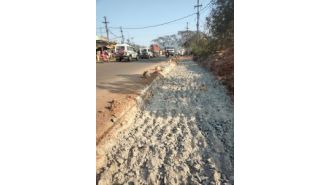American citizens voting on many measures that will impact their lives, including issues related to mortality, financial obligations, and more.
24 measures aimed at upcoming elections.

As election day approaches, voters in many states are not only choosing officials to create and enforce laws, but also deciding on over 140 ballot proposals that could have a significant impact on people's daily lives. These measures cover a wide range of topics, from abortion and marijuana legalization to taxes and housing.
One of the most hotly debated issues on the ballot is the legalization of marijuana. In Florida, North Dakota, and South Dakota, voters are considering whether to legalize recreational use for adults. This is not the first time these states have voted on this issue, as North Dakota and South Dakota have previously had similar measures on the ballot. In Nebraska, voters are also weighing in on medical marijuana legalization.
Aside from marijuana, there are also a few other notable measures related to future elections. Some states are considering measures that would specifically prevent noncitizens from voting, while others are looking at school choice and the use of state funds for private schools.
In the realm of taxes, Colorado is considering a proposal to tax firearms and ammunition, with the revenue going towards crime victim services. On the other hand, North Dakota voters are deciding whether to eliminate property taxes, which would require the state to find alternative sources of revenue. And in South Dakota, there is a measure to repeal the state's sales tax on groceries, a move that has already been made in many other states.
Housing is also a big issue on the ballot, with California voters deciding whether to repeal a law that limits rent control ordinances. In Arizona, there is a unique proposal that links property taxes with responses to homelessness, allowing property owners to seek refunds if the local government fails to enforce certain ordinances.
Climate change is also a topic of concern, with voters in Washington state considering whether to repeal a law that caps carbon emissions and creates a market for businesses to purchase allowances. This law was modeled after a similar program in California.
Some states are also looking at voting methods, such as allowing no-excuse absentee voting and implementing open primaries with ranked choice voting. Meanwhile, in Ohio, there is a proposal to create a citizens commission to handle redistricting for U.S. House and state legislative seats, taking the task away from elected officials.
Minimum wage is another contentious issue on the ballot, with measures in Missouri, Alaska, and California to gradually raise the minimum wage to $15 an hour and require paid sick leave. In Nebraska, there is a proposal to require employers to provide sick leave, but without changing the minimum wage. And in Arizona, there is a measure that would allow tipped workers to be paid 25% less than the minimum wage, as long as their tips bring their total pay above the minimum wage threshold.
Finally, in West Virginia, voters are deciding on a measure to amend the state constitution to prohibit medically assisted suicide. This goes against the trend in several other states where physician-assisted suicide is allowed.
Overall, these ballot measures cover a wide range of topics and have the potential to greatly impact the lives of citizens in these states. Whether they were initiated by citizen petitions or placed on the ballot by lawmakers, these measures will be decided by the voters and could have lasting effects on the way people live, work, and even die.










